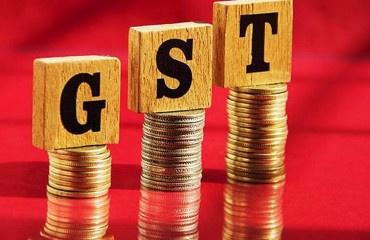
Delhivery seeks to boost profit margins after acquiring Ecom Express, reducing the need for heavy discounts. The company reported a 16.3% revenue increase, while logging a net loss of ₹51 crore. Its express parcel volumes rose 32% year-on-year in the September quarter.
Logistics company Delhivery is betting on cost efficiencies built over the past year, and a steadier market to expand profit margins, even though the timing of the goods and services tax (GST) changes hurt shipment volumes in September.
At a post-earnings call on Wednesday for the September quarter, Delhivery chief executive Sahil Barua said that after acquiring Ecom Express, the company no longer needs heavy discounts, and its Express margins can rise above 18% as competition eases and smaller rivals retreat.
Delhivery completed the acquisition of Gurugram-based Ecom Express for ₹1,407 crore in July, gaining shipment volume and market share.
"Post the acquisition, we're probably closer to somewhere between 27 and 30% or so (in market share)," Barua said.
The company has aggressively rationalised the acquired footprint, retaining just seven facilities (1.3 mn sq. ft.) while exiting nearly 1.1 mn sq. ft. Moreover, it has trimmed about 85% of Ecom Express's corporate and support costs since the deal.
Delhivery also plans to wind down some inherited contracts. "Ecom was in certain businesses that Delhivery doesn't want to service. That will also just wash out and go to zero," Barua said.
Delhivery reported ₹2,546 crore in revenue from services in the September quarter (Q2 FY26), up 16.3% year-on-year, while posting a net loss of ₹51 crore for the quarter. The company served 48,442 active customers during the period. Its physical network spanned 22.05 million sq. ft from 19.48 million sq. ft a year ago, reaching 18,830 pin codes.
Shares of Delhivery settled 2.7% higher at 4,84.95 apiece on the BSE on Tuesday. Markets were closed on Wednesday for a public holiday.
Reduced discounting pressure
Barua reiterated that Ecom Express's long-term Ebitda (earnings before interest, taxes, depreciation, and amortization) margins can rise beyond the company's stated 16–18% range, depending on pricing choices.
"Beyond 18%, if the company feels it is necessary… and if… there is additional share of wallet for us to be gained, we typically tend to pass a certain amount of pricing benefits back," Barua said.
However, consolidation and inflationary pressure on competitors have reduced the need to give discounts.
"As the competitive intensity in this sector has reduced… the necessity for us to pass on these benefits has reduced year on year," he said.
The Express business reported 15.3% service Ebitda margin in Q2—slightly softer sequentially, partly because volumes moved into October following GST changes.
GST's temporary drag
The change in GST rates also caused a temporary drag. "When the GST rates were changed, I think people consciously postponed consumption… That is why during the middle 10 days in September, there was actually a dip in consumption," Barua noted.
The volume rebound was led by categories such as consumer durables, he said.
Delhivery's express parcel volumes rose to 246 million orders in Q2FY26, rising 32% y-o-y and 18% sequentially.
The 7.2-million single-day peak came in the broader festive window, during which volumes shifted toward late September and early October after GST-related demand timing changes.
The government's GST reforms, which became effective from 22 September, eliminated rate slabs of 12% and 28%, creating a two-slab system with products and services taxed at 5% and 18%.
Rapid commerce still small, building out
Delhivery's quick-commerce–adjacent bet remains nascent, though the company is gradually widening the network. Barua said the business currently runs at about ₹12-crore annualised revenue, supported by 20 dark stores across three cities, and is expected to scale meaningfully over the next few quarters.
"We expect Rapid Commerce to contribute revenues of ₹80–100 crore in the near to mid-term… We will commence operations in NCR (national capital in Q3 FY26," he said, adding that the company plans to extend the offering to B2B clients in Q3 and Q4 FY26.
Under Rapid Commerce, the company promises to deliver parcels in 2 hours.
